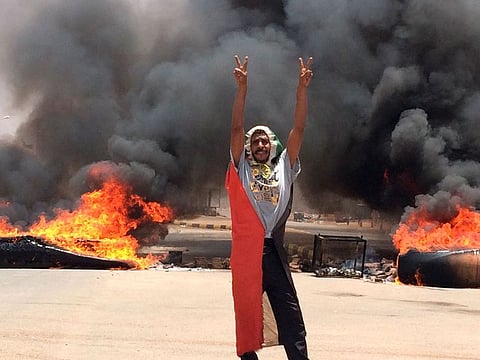UN-backed talks are the only way forward for Sudan
Factions that are boycotting negotiations will find themselves on wrong side of history

It couldn’t have come a moment too soon. On Wednesday, rival factions in Sudan began UN-backed direct negotiations to resolve the severe political crisis the country faces, after last year’s dissolution of the government by the military. The talks are the most serious attempt yet to put Sudan back on course, as they have the support not only of the UN but also the African Union, and the eight-member east African regional group called Intergovernmental Authority in Development.
Besides, the negotiations are also supported by the United States; the American Assistant Secretary of State for African Affairs Molly Phee visited Sudan recently and met with both military and civilian leaders. She urged full participation in the talks to ‘achieve a civilian-led path towards democracy for Sudan’.
Months of efforts and private discussions have gone into the planning of these negotiations. It is imperative that all sides participate.
Unfortunately, the Forces for Freedom and Change — the primary civilian bloc in the country that lost power after the military’s action — and the Umma party have refused to take part in the negotiations.
Why are the talks important? Simply put, they are the only feasible way forward, in that they incorporate what the UN envoy to Sudan has termed a ‘transitional programme’. This programme includes the appointment of a new prime minister and beginning of the process of drafting a permanent constitution. It also envisages elections at the end of the transition.
Sudan has been on the fringes of global order for a long time, primarily due to the repressive rule of President Omar Al Bashir for three decades. All these years, this vital Arab and African nation was considered a pariah on the international stage. Only after Al Bashir’s ouster in 2019 did the country begin to emerge from its international isolation, before hitting roadblocks once again on the path to its transition.
There are factions within pro-democracy alliance that want to participate in the talks as they rightly consider it the ‘best possible option’. But, hardliners in the alliance want total and instant transfer of power to a ‘civilian democratic authority’. The most vocal of these hardliners are, unsurprisingly, from the Communist Party.
These factions are doing a disservice to their country. They should realise that the negotiations process has full international backing. If they insist on staying out of this, they will find themselves on the wrong side of history.







